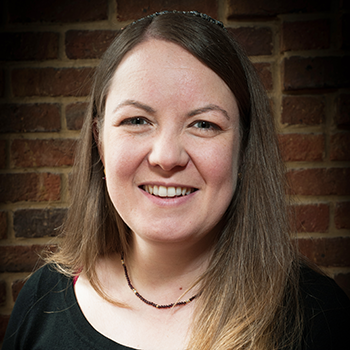"The Eternal said to Abram, 'Go forth from your native land and from your father's house to the land that I will show you. I will make of you a great nation, and I will bless you; I will make your name great, and you shall be a blessing.'" (Genesis 12:1-2)
Parashat Lech L'cha opens with a bold call, commanding Abram to leave his land, his family, and his father's house to journey into the unknown. But why is God sending Abram on this journey to carry the promise into new lands?
According to Genesis Rabbah 38:13, a famous midrash, the journey of Lech L'cha begins with Abram defying the norms set by his father, Terach. Left to mind Terach's idol shop, Abram smashed all the statues. For this defiance, he is forced to flee, carrying with him only God's promise as he journeys to an unknown destination.
The contemporary Scottish-Israeli Torah scholar Avivah Gottlieb Zornberg notes that the command "lech l'cha" - literally "go to yourself" - is not only a summons to leave home, but a call to risk one's very identity. Journeying forward is to become something new. This insight bridges the biblical story with later Jewish experience: carrying the promise often means risking self, safety, and certainty in order to renew Jewish life.
Many generations after Abram, another Jew was forced to journey from his home because he rebelled against the norms of his time. While Isaac Mayer Wise (1819-1900) is probably most well known for establishing the Union of American Hebrew Congregations in 1873 (today the URJ), Hebrew Union College in 1875, and the Central Conference of American Rabbis in 1889, his own lech l'cha story is likely less familiar.
In 19th-century Bohemia, the Familiants Laws restricted how many Jews could marry in a given year, condemning many to celibacy or exile. Rabbi Isaac Weiss, as he was then known, served the town of Radnice in Bohemia, where he officiated forbidden marriages, leading to persecution. In 1846, he disguised himself, fled on a farm cart, and emigrated with his family to the United States. Like Abram, Wise refused to accept the norms of his time. He journeyed from Czech lands into the unknown, carrying the covenant with him and planting it anew across the ocean, bringing with him the ideas of European Reform Judaism that would take root and flourish on American soil.
Rabbi Wise's story of persecution foreshadowed the darkest episode in Czech Jewish history. The Shoah shattered a once-vibrant community. When Czech Jews realized that they were in grave danger, they gathered the country's Torah scrolls at the Jewish Museum in Prague with the hope that the scrolls would be kept safe. While many Czech Jews did not return from the camps - even the curators of the museum were not spared - more than 1,500 scrolls survived.
When the Torah scrolls were rediscovered after the war, a company run by the Czech Communist government approached a London art dealer who frequently visited Prague to buy paintings to ask if he was interested. He approached Ralph Yablon who, in consultation with Rabbi Harold Reinhart of the Westminster Synagogue, purchased the entire collection. The Czech Memorial Scrolls Trust was established in London to restore the scrolls and distribute them to congregations around the world. Today, hundreds of URJ synagogues in North America and beyond are guardians of these scrolls. Each scroll is a survivor - a fragment of the covenant carried forth, proclaiming that Torah still speaks even after devastation. When Reform Jews unroll a Czech scroll in Chicago, Toronto, or London, they are linked back to the towns and voices of Czech Jewry.
It was a Czech Torah scroll that inspired Rabbi Dr. Andrew Goldstein of The Ark Synagogue in London to connect with the few Jews left in post-Holocaust Czechoslovakia. After the fall of communism in 1989, he partnered with local leaders and the European Union for Progressive Judaism to help re-establish congregations in Prague and beyond, ensuring that progressive Jewish life could once again take root on Czech soil. His and his team's research into the history of the "Czech Torah towns" gave voice to the communities from which the scrolls had come, building enduring links between Czech Jews and Reform Jews around the world. Today, the Czech Progressive community is growing in strength and confidence, taking pride in being led by Czech-born Rabbi David Maxa, a sign that the covenant, once carried abroad, has been replanted at home and is thriving.
From Abram's journey into the unknown, to Isaac Mayer Wise's flight from Radnice, to the scrolls that travelled from Czech towns to Reform congregations around the world, to Progressive Judaism's renewal in Czech lands, the story of God's promise has never been anchored in one place. It is carried forward through courage, resilience, and faith.
Zornberg reminds us that Parashat Lech L'cha is not only about leaving home, but also about risking identity itself in order to carry the covenant into new futures. Parashat Lech L'cha challenges each of us to ask what norms of our times we accept, though they may betray our sacred tradition. It also encourages us to summon the courage of the journey: to risk, to move, and to carry the covenant forward so that it remains alive in our own time.
Explore Jewish Life and Get Inspired
Subscribe for Emails

